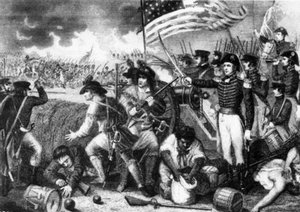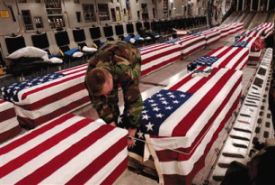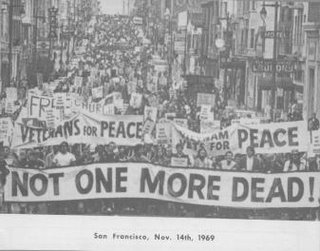 "They're selling postcards of the hanging
"They're selling postcards of the hangingThey're painting the passports brown
The beauty parlor is filled with sailors
The circus is in town"
—Bob Dylan, Desolation Row (1965)
Despite assurances that television coverage will be “tasteful” in the
The exact method of hanging hasn’t yet been disclosed. Will the Maliki government inflict maximal suffering by using piano wire instead of the traditional hemp rope, as Hitler ordered for the plotters who failed in their attempt to assassinate him in 1944*? Will Saddam be stripped naked to add humiliation to the extreme suffering of this form of execution? Will Saddam’s many enemies, like Hitler before them, watch the video over and over, laughing and gloating with their friends? If a hemp rope is used, will the hangman—perhaps deliberately—tie the noose so sloppily that Saddam will slowly strangle? In the atavistic spirit of the times, will Saddam's head be displayed on a pike on the highway from the airport to central Baghdad?
Saddam’s execution will also eliminate a delicate problem: if he had been given a life sentence, how could his eventual escape from Iraqi custody—and even an unthinkable return to power—be avoided? Now it appears that the Iraqi government won’t even be trusted to manage Saddam’s execution. The
Supporters of the death penalty, in the
The trial judgment was not finished when the verdict and sentence were announced on November 5. The record only became available to defence** lawyers on November 22. According to the tribunal's statute, the defence attorneys had to file their appeals on December 5, which gave them less than two weeks to respond to the 300-page trial decision. The appeals chamber never held a hearing to consider the legal arguments presented as allowed by Iraqi law. It defies belief that the appeals chamber could fairly review a 300-page decision together with written submissions by the defence and consider all the relevant issues in less than three weeks.
This unseemly haste, though apparently consistent with Iraqi law, compounded the problems of a trial that many observers consider unduly influenced by the Shiite government and, by implication, the
The momentary elation over Saddam's demise among those who suffered under his regime will not outweigh or outlast the loss of a unique opportunity to establish a clear record of his regime's criminality. The flawed trial and a fast-track execution send a clear signal that political interference is still very much a feature of the judicial process in the new Iraq.
No doubt the administration will spin the execution of Saddam as one of its—and the Maliki regime's—rare "successes" in Iraq. But it should also give George Bush pause to reflect on one possible fate of tyrants who engage in wars of aggression and crimes against humanity.***
*For a detailed account of Hitler's brutal response to the July plot, I highly recommend Marie Vassiltchikov's Berlin Diaries: 1940-45.
**My proofreader insists that I point out the following: this quote is from the London Guardian and the Brits spell "defence" with a "c." Noah Webster's spelling reforms never took root on the other side of the pond. I read, though I forget where, that English-speaking students spend 30% more time studying spelling than their peers in other countries.
***Some Democrats, like Senate Majority Leader Reid, have already rallied around the proposal for a "surge" of U.S. troops in Iraq. Maybe the new majority party should devote some of its energies to evaluating the conduct of administration officials through the prism of the Nuremberg Principles and other standards of international law.
UPDATE (January 1, 2007)
Once again I've learned that one should never underestimate how much things can go wrong for the U.S. in Iraq. I at least expected Saddam's execution to proceed with a crisp patina of professionalism. As recounted by the New York Times and others, however, it was quite the opposite. It degenerated into a shouting match between Saddam and the Saddrist witnesses and executioners, resulting in the release of the trap door just as Saddam was reciting his final prayer. Not to mention the last-minute "workarounds" of Iraqi law that allowed the hasty execution to proceed with minimal preparation, as described by Glenn Greenwald.



